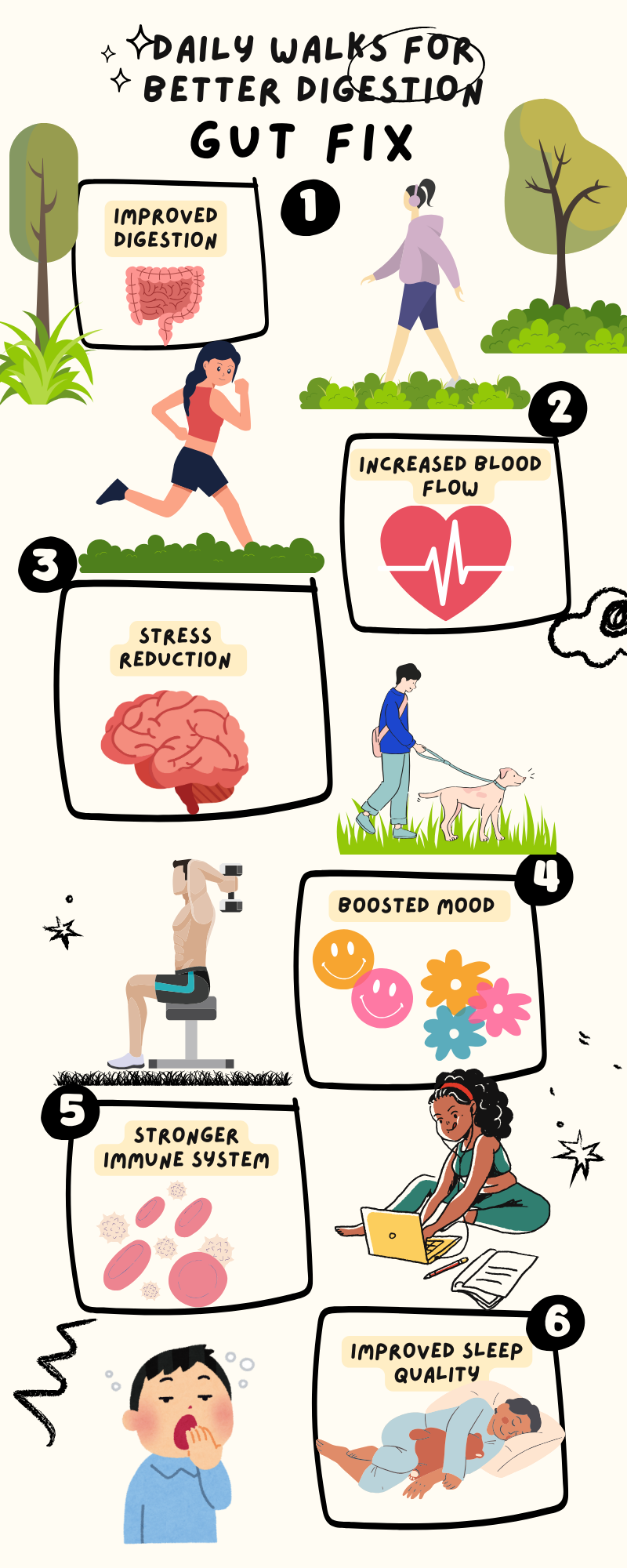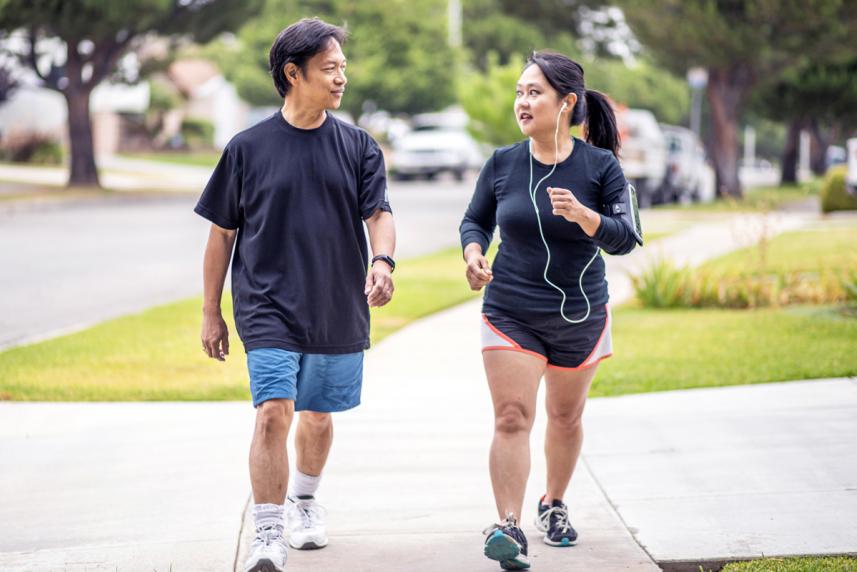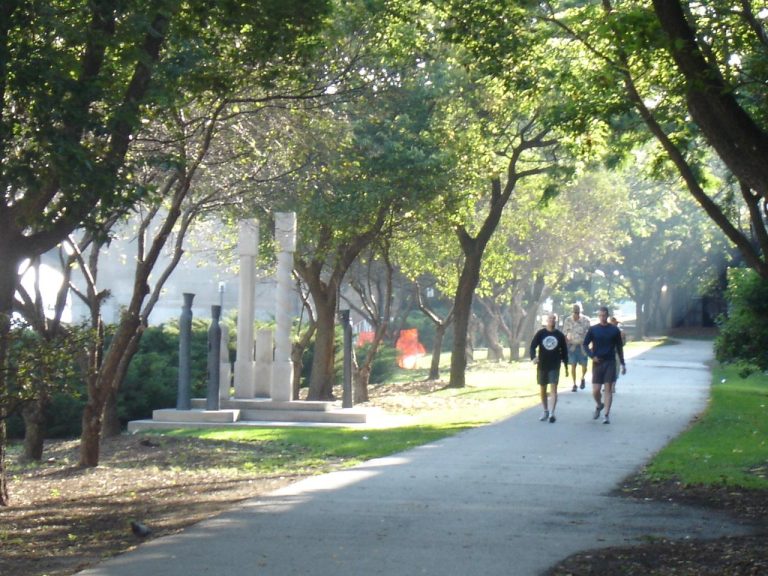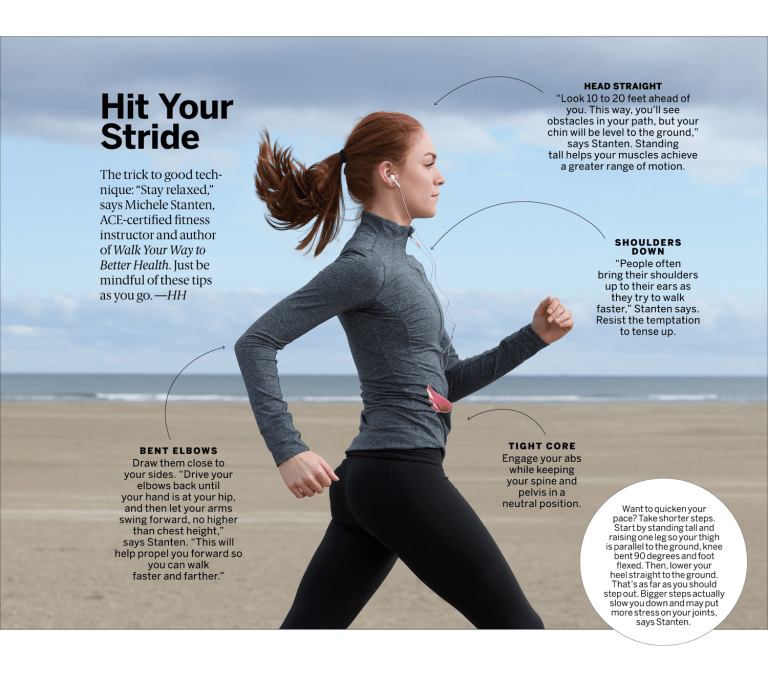Why is Walking Good for Digestion : Boost Your Digestive Health with Walking
Walking aids digestion by increasing blood flow to the digestive system and promoting bowel movement. It stimulates natural contractions in the intestines, helping to move food through the digestive tract efficiently.
Additionally, walking can reduce bloating and gas by preventing food from sitting in the stomach for too long. Moreover, the gentle exercise of walking has been shown to alleviate symptoms of indigestion and heartburn. In addition to its physical benefits, walking can also improve mental well-being, thereby indirectly supporting digestive health.
So, incorporating regular walks into your routine can be a simple yet effective way to enhance your digestion and overall health.
1. Physical Activity And Digestion
Physical activity plays a crucial role in maintaining a healthy digestive system. It not only keeps our bodies fit but also helps to regulate the digestion process. When it comes to physical activity, walking is one of the simplest yet most effective exercises for improving digestion. Let’s take a closer look at how physical activity affects digestion and the specific benefits of walking in this regard.
1.1 How Does Physical Activity Affect Digestion?
- Physical activity helps to stimulate the muscles in the intestines, promoting regular bowel movements.
- It increases blood flow to the digestive organs, enhancing their overall function.
- Exercise helps to reduce stress, which can contribute to digestive issues such as bloating and indigestion.
- Engaging in physical activity on a regular basis can improve metabolism and prevent constipation.
1.2 The Benefits Of Walking For Digestion
Walking, as a low-impact exercise, offers a range of benefits specifically related to digestive health:
- Walking helps to alleviate constipation and promote regular bowel movements.
- It aids in the digestion and absorption of nutrients by increasing blood flow to the digestive organs.
- Walking after a meal helps to speed up the digestion process and prevent discomfort.
- Regular walking can reduce the risk of developing gastrointestinal disorders, such as acid reflux and irritable bowel syndrome (IBS).
- This form of exercise helps to maintain a healthy body weight, which is beneficial for overall digestive health.
By including walking as a part of your daily routine, you can not only improve your physical fitness but also optimize your digestion. So, put on your walking shoes and take a stroll to support a healthy digestive system.

Credit: www.northwestpharmacy.com
2. Walking And Its Impact On The Digestive System
2. Walking and its impact on the digestive system
2.1 Increased Blood Flow And Digestion
Walking boosts blood flow, aiding digestion by enhancing nutrient absorption.
2.2 Stimulating Bowel Movements
Walking promotes peristalsis, assisting in smooth bowel movements for efficient digestion.
3. Walking As A Natural Remedy For Digestive Issues
Walking is not only a great form of physical activity, but it also has numerous benefits for digestive health. Incorporating regular walks into your routine can significantly help improve digestion and alleviate various digestive issues. In this section, we’ll explore the natural remedy of walking for digestive health, focusing on how it can provide relief from indigestion and alleviate constipation.
3.1 Walking For Indigestion Relief
Indigestion can often be uncomfortable and disruptive, but walking can serve as a simple and effective solution. Engaging in a brisk walk shortly after a meal can aid in the digestion process by helping the food move through your system more smoothly. This physical activity stimulates the digestive system and helps to prevent the build-up of gas and bloating that often accompanies indigestion.
3.2 Alleviating Constipation Through Walking
Constipation is a common issue that can be bothersome and painful. However, walking is a natural, non-invasive method to help alleviate constipation. The rhythmic motion of walking can help stimulate bowel movements by encouraging the muscles in your abdomen to work and promoting healthy digestion. Moreover, regular walks can contribute to improved overall bowel function, reducing the likelihood of constipation.

Credit: theblissfulwellness.com
4. Incorporating Walking Into Your Daily Routine
Incorporating walking into your daily routine can benefit digestion. Regular walking helps promote healthy digestion by stimulating the muscles in your abdomen and increasing the flow of blood and oxygen to your digestive system.
4.1 Tips For Getting Started With A Walking Routine
Walking is a simple and accessible way to improve digestion and enhance overall well-being. To reap the digestive benefits of walking, it’s important to incorporate it into your daily routine. Here are some helpful tips to get started:
- Start slow: Begin with short walks of 10-15 minutes and gradually increase the duration over time.
- Set a schedule: Plan specific times during the day for your walks to establish a routine.
- Find a walking buddy: Walking with a friend or family member can make it more enjoyable and help you stay motivated.
- Explore different routes: Vary your walking routes to keep your walks interesting and prevent boredom.
- Dress comfortably: Wear breathable and supportive shoes and clothing that allows for easy movement.
4.2 Maximizing The Digestive Benefits Of Walking
Walking can have incredible digestive benefits when done in a mindful manner. Here are some strategies to maximize those benefits:
- Eat before your walk: Consuming a light snack or meal before your walk can stimulate digestion and provide fuel for your walk.
- Practice good posture: Maintain an upright posture while walking to promote proper digestion and prevent discomfort.
- Engage your core: Activate your core muscles by pulling your navel toward your spine while walking, which can further aid digestion.
- Take deep breaths: Focus on deep breathing while walking to relax your body and improve digestion.
- Avoid walking immediately after a heavy meal: Allow your body some time to digest before embarking on a walk, as immediate exercise may cause discomfort.
By incorporating walking into your daily routine and following these tips, you can experience improved digestion and overall well-being. Remember to listen to your body’s needs and gradually increase the intensity and duration of your walks as your fitness level improves. Make walking a part of your everyday life and reap the benefits for your digestion and beyond!

Credit: www.instagram.com
Frequently Asked Questions On Why Is Walking Good For Digestion
Does Walking Help With Digestion?
Yes, walking can aid digestion by reducing bloating and helping food move through the digestive system efficiently.
How Long Should I Walk To Digest?
Walking for 10-30 minutes after meals can aid digestion. Short walks help stimulate digestion and reduce bloating.
Is It Ok To Walk 30 Minutes After Eating?
Yes, it is absolutely fine to walk for 30 minutes after eating. In fact, this can aid digestion and help regulate blood sugar levels. However, if you experience discomfort, it’s best to wait a little longer before walking.
Does Walking Help Empty Your Stomach?
Yes, walking can help empty your stomach faster by aiding digestion and promoting movement in the gastrointestinal tract.
Conclusion
Incorporating regular walks into your routine can greatly benefit your digestion. The gentle movement aids in the natural flow of food through the digestive system, preventing issues like bloating and constipation. Embrace the simplicity and effectiveness of walking for improved digestive health and overall well-being.






